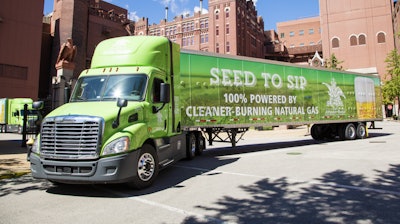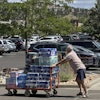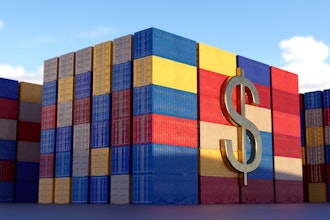
ST. LOUIS, MO — As part of its ongoing commitment to sustainable logistics and reducing carbon emissions, Anheuser-Busch announced Aug. 12 that it is transitioning more than 180 trucks – representing approximately 30 percent of its dedicated fleet – to Renewable Natural Gas (RNG).
In 2014 and 2015, Anheuser-Busch converted 160 diesel-fueled trucks in Houston and St. Louis to fleets powered by Compressed Natural Gas (CNG) engines. As the next step to achieve its 2025 sustainability goal of reducing carbon emissions across its value chain by 25 percent by 2025, the brewer will be expanding this fleet and investing in technology to transition to cleaner-burning renewable natural gas.
“We are incredibly fortunate to work hand-in-hand with our suppliers to identify new solutions, like RNG, to improve the sustainability of our fleet and reduce carbon emissions across our entire value chain,” said Ingrid De Ryck, Vice President of Procurement and Sustainability at Anheuser-Busch. “Innovation in the transportation sector is a massive opportunity for companies like ours and we continuously strive to lead the industry by transporting every beer in the most sustainable way possible.”
The two fleets are expected to travel more than 8.5 million miles each year. By transitioning the trucks within these fleets to Renewable Natural Gas provided by American Natural Gas and U.S. Gain, the brewer expects to reduce its emissions by more than 70 percent compared to conventional diesel – the equivalent of taking more than 66 thousand passenger cars off the road or planting more than 8 million new trees.
“Our team is very grateful for the relationship that we have with Anheuser- Busch. We are happy to play a key role in decarbonizing their logistics operation at several of their production facilities,” said Drew West, CEO and Founder of American Natural Gas. “ANG is dedicated to helping fleet operators reach their sustainability goals now and in the future. We put the future within reach for our customers like Anheuser-Busch who set the sustainability bar high and drive the alternative fueling industry forward.”
“We’ve had the pleasure of working with Anheuser-Busch since 2015, supplying clean natural gas and fueling infrastructure in support of their alternative fuel journey. Now, we’re excited to bring them renewable natural gas, further boosting emission reductions as part of their overall decarbonization strategy”, said Ross Finlan, Business Development Manager with U.S. Gain. “Renewable natural gas is an affordable, clean and widely available alternative fuel. And – because its produced from waste, renewable natural gas reduces reliance on fossil fuels. As a vertically integrated sustainable energy solutions provider, U.S. Gain continues to expand its portfolio of 20+ renewable natural gas development projects, offering fleets like Anheuser-Busch some of the cleanest fuel at the best value.”
As part of the transition, Anheuser-Busch has placed an order from Agility Fuel Solutions – a leading global provider of clean fuel solutions for medium- and heavy-duty commercial vehicles – to expand its existing CNG fleet by equipping over 180 new class-8 trucks with Agility’s ProCab 175 CNG Fuel Systems, the latest in clean energy technology.
“RNG or biomethane is a pipeline quality gas fully interchangeable with CNG and is one of the cleanest burning fuels available. We are pleased to see that our systems continue to enable Anheuser-Busch to opt for lower emission solutions in their fleet,” says Seung Baik, President of Agility Fuel Solutions. “The performance, durability, and price stability of CNG-powered trucks make it a great value for distribution fleets like Anheuser-Busch.”
Implementing sustainable technology in its fleet has been a key focus for Anheuser-Busch since the launch of its sustainability goals in 2018. Through partnerships with cutting-edge manufacturers as well as digital freight providers, the brewer plans to convert its entire long-haul dedicated fleet to renewable energy-powered trucks by 2025 and harness data and analytics to reduce empty miles within its routes.
To learn more about Anheuser-Busch’s 2025 sustainability goals and commitment to sustainable logistics, click here.






















